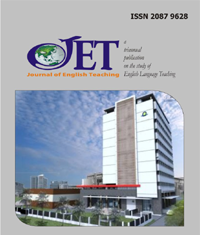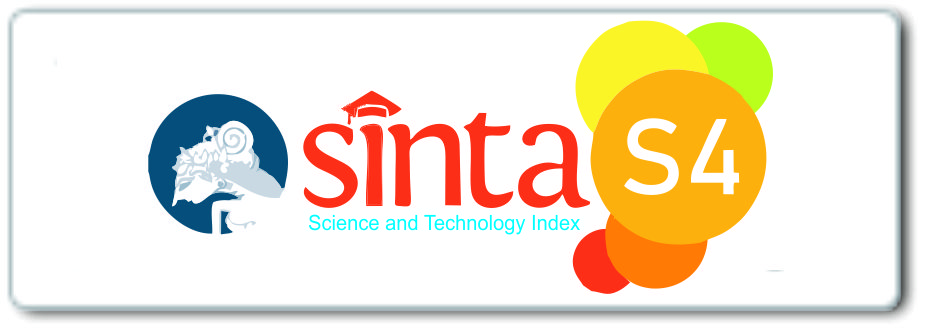Critical reflection on the academic writing standard of first-year English second-language students in a South African university
academic writing standard
DOI:
https://doi.org/10.33541/jet.v10i3.5823Keywords:
Academic writing;, English Second Language;, Proficiency;, First year students, Written Corrective FeedbackAbstract
This paper provides a critical reflection on the academic writing ability of English second language students in a South African university. Acquiring proficiency in academic writing is one of the essential skills that students at the tertiary level are expected to master. One challenge that has emerged after the outbreak of Covid-19 is that universities in restructuring their curriculum have not given adequate time to interact with beginning students to provide writing instructions to help them meet the standard expected; this challenge motivated the study. A qualitative research, method was used and data was collected from a selection of first-year students, registered in the first semester, for English which is a compulsory Communication Skills course. Participants were given a narrative essay and all scripts were marked and rated by two experienced lecturers, using a rubric. The findings indicated that students encounter numerous challenges in writing a coherent academic essay, as they have low proficiency in English which is the medium of instruction.
References
Anggunsari, P. & Wahyuni, S. (2023). Direct written corrective feedback for tenth-grade recount text: adequate practice to boost sentential accuracy. Journal of English Teaching, 9(3); 310-322.
Anderson, C.E. & L. Cuestra-Medina (2019). Beliefs and practices concerning academic writing among postgraduate language teacher trainees. Ikala, Revista de language y Cultura, 24(1); 29-49.
Barnhisel, G., E. Stoddart & J. Gorman (2012). Incorporating process-based writing pedagogy into first-year learning communities: strategies and outcomes. The Journal of General Education, 61(4), 461 – 487. https://doi.org/10.5325/jgeneeduc.61.4.0461
Brown, B. Mbewe, A. & Forcheh, N. (2023) Levels of interest among prospective and enrolled undergraduate students in learning through online and blended modes. South African Journal of Higher Education, 37(2), 20-42. https://dx.doi.org/10.20853/37-3-4848
Berg, B.L. (2001). Qualitative research methods for social sciences. Needham Heights: Pearson Education Company.
Blommaert, J. (2015). Pierre Bourdieu: Perspectives in language and Society. In J Östman and J Verschueren, Handbook of Pragmatics. John Benjamin Publishing.
Bourdieu, P. (1990). In other words: essays towards a reflexive sociology. Stanford, Calif: Stanford University Press.
Canton, U., M. Govan & D. Zahn. (2017). Rethinking academic literacies: a conceptual development based in teaching practice. Teaching in Higher Education, 23(6), 668-684.
Coleman, L & J. Tuck. (2020). Understanding students writing from lecturers’ perspectives: acknowledging pedagogic complexity to support transformative practices in context. Studies in Higher Education, 46 (9): 1894-1906. https://doi.org/10.1080/13562517.2017.1414783
Coxhead, A. (2000). A new academic word list. TESOL Quarterly, 32(2), 213 – 238.
Creswell, J.W. (2009). Research design: qualitative, quantitative and mixed methods approach. Thousand Oaks: Sage Publication.
Cummins, J. (1980). The cross-lingual dimension of language proficiency: implications for bilingual education and the optimal age issue. TESOL Quarterly, 14, 175 – 187.
Damanik, J.Y. (2022). Peer feedback to improve Indonesian Adult learners’ writing skills: a literature review, Journal of English Teaching, 10(1), 49-58.
Deane, M & P. O’Neill (2011). Writing in the disciplines: Beyond remediality. In Deane, M. & P, O’Neill (eds.). Writing in the disciplines, pp. 3-11. New York: Palgrave Macmillan.
Douglas, S. R. (2013). After the first 2,000: a response to Horst’s “Mainstreaming second language vocabulary acquisition”. The Canadian Journal of Applied Linguistics, 16 (1), 189 – 199.
Evans, S & S. Green. (2007). Why EAP is necessary? A survey of Hong Kong tertiary students. Journal of English for Academic Purposes, 6 (1), 3-17.
Fisher, R., J. Cavanagh & A. Bowles. A. (2011). Assisting transition to university: using assessment as a formative learning tool. Assessment & Evaluation in Higher Education, 36(2),225-237. https://doi.org/10.1080/02602930903308241
Gebril, A. & L. Platkans (2016). Source-based task in academic writing assessment: lexical diversity, textual borrowing and proficiency. Journal of English for Academic Purposes, 24, 78-88. https://doi.org/10.1016/j.jeap.2016.10.001
Henderson, J. 2020. Styling writing and being styled in university literacy practice. Teaching in Higher Education, 25(1), 1-17. https://doi.org/10.1080/13562517.2018.1527765
Hinkel, E. 2013. Research findings on teaching grammar for academic writing. English Teaching, 68(4), 3-21. http://dx.doi.org/10.15858/engtea.68.4.201312.3
Horst, M. 2013. Mainstreaming second language vocabulary acquisition. The Canadian Journal of Applied Linguistics, 16 (1), 171 – 188.
Hyland, K. 2016. Academic publishing and the myths of linguistic injustice. Journal of Second Language Writing, 31, 58-68. https://doi.org/10.1016/j.jslw.2016.01.005
Joseph, J. 2020. ‘The urgency of habitus: Bourdieu and language at the conjunction of Marxism, phenomenology and structuralism. Language and Communication, 71, 108-122.
Joshua, L.M. 2024. A “Vingerklip” view on academic writing among masters’ degree students: a case of research proposals in the University of Namibia. Journal of English Teaching, 10(1),1-14.
Khumalo, N.P. & S. Reddy. 2021. Cross-disciplinary synergy: first-year students’ experiences of learning academic writing through integrated writing support at a university of technology. The Journal for Transdisciplinary Research in Southern Africa, 17(1): a1038.
Law, S. & A. Baer. 2020. Using technology and structured peer reviews to enhance students’ writing. Active Learning in Higher Education, 21(1), 23-28.
Macaro, E., S. Curle, J. Pun, J. A & J. Dearden. 2018. A systematic review of English medium of Instruction in higher education. Language Teaching, 51(1): 36-76. https: doi.org/10.1017/S0261444811000350
Pardede, P. (2024). Collaborative writing in EFL setting: A review. Journal of English Teaching, 10(1), 92–109. https://doi.org/https://doi.org/10.33541/jet.v10i1.5631
Pawlak, M. (2013). Principles of instructed language learning revisited: guidelines for effective grammar teaching in the foreign language classroom. In K. Drodzdzial and M. Pawlak (eds.), Psycholinguistic and sociolinguistics on second language learning and teaching. Berlin: Springer-Verlag.
Pineteh, E.A. (2014). The academic writing challenges of undergraduate students: a South African case study. International Journal of Higher Education, 3(1), 12-22.
Purser, E.R. (2002). Teaching academic writing at the University of Wollongong. In, C. Thaiss, G. Brauer, L. Ganobcsik-Williams & A. Sinha (Eds.), Writing programs worldwide: profiles of academic writing in many places (pp.55-68). United States of America: Parlor Press.
Roald, G.M., Wallin, P., Hybertsen, I.D. & J.M. Stenoier. (2021). Learning from contrasts: first-year students writing themselves into academic literacy. Journal of Further and Higher Education, 46(6), 758-770. Doi-10.1080/0309877X.2020.1813264
Scott, D., Ulmer-Krol, S & J. Ribeiro. (2020). Enhancing the academic writing abilities of first-year Bachelor of Education students in a blended learning environment. International Journal of Teaching and Learning in Higher Education, 32(1), 87-98.
Shields, S. (2015). ‘My work is bleeding’: exploring students’ emotional responses to first-year assignment feedback. Teaching in Higher Education, 20(6), 614-624. http://dx.doi.org/10.1080/13562517.2015.1052786
Vanderstoep, S.W. & D.D. Johnston. 2009. Research Methods for everyday life: Blending qualitative and quantitative approaches. San Francisco: Jossey – Bass.
Wischgoll, A. 2017. Improving undergraduates’ and postgraduates’ academic writing skills with strategy training and feedback. Frontiers in Education, 2.33. https://doi.org/10.3389/feduc.2017.00033
Xulu-Gama, N & S Hadebe. 2022. Language of instruction: a critical aspect of epistemological access to higher education in South Africa. South African Journal of Higher Education, 36(5),291-307. https://dx.org/10.20853/36-5-4788
Zhang, C. 2013. Effect of instruction on ESL students’ synthesis writing. Journal of Second Language Writing, 22(1), 51-67. https://doi.org/10.1016/j.jslw.2012.12.001
Downloads
Published
Issue
Section
License
Copyrights for articles published in JET are retained by the authors, with first publication rights granted to the journal. The journal/publisher is not responsible for subsequent uses of the work. It is the author's responsibility to bring an infringement action if so desired by the author.





